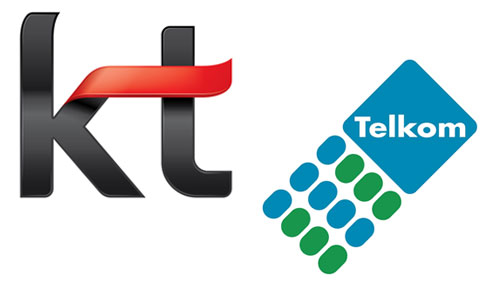
Building fibre-to-the-home networks in SA makes sense, especially when these networks are built in dense urban areas. That’s the view of a senior executive at KT Corp (formerly Korea Telecom), which is in talks to buy 20% of Telkom.
A small team of senior KT Corp managers is in Johannesburg this week to continue discussions with SA’s fixed-line incumbent operator. The executives sat down with TechCentral on Monday afternoon to talk about KT’s history and its plans to play a bigger role on the African continent.
Hong-Jin Kim, KT’s senior executive vice-president, says of the company’s 7,6m Internet subscribers, 87% are connected via high-speed fibre-optic cables. Kim says in a market like SA’s, fibre to the home is a “great solution in dense areas” and should “definitely be considered”.
However, he says fibre is not a solution to SA’s overarching connectivity challenges as the country is large compared to markets like Korea. Urban areas “would definitely benefit from [fibre to the home]”, he says.
Kim says when it comes to connecting Africa, “a variety of solutions are needed”, including wireless, copper and fibre.
KT, which was once owned by the Korean government, is already active in half a dozen African countries and views the continent as having great potential for investors.
Kim says operators that start life as state-owned enterprises, but which are privatised — either fully or partially — still have “DNA” from being public entities. They remain “bureaucratic, slow and stubborn”.
Kim has been tasked with changing KT and says the company has undergone enormous “transformation” in recent years.
This transformation was started by KT’s CEO, Suk-Chae Lee, a former economist and former minister of communications, who has a “strong belief that we must change this company and drive it into the future because the telecoms sector is key to economic growth and for the country as a whole”.
He says the challenges facing KT are common to all incumbent operators, particularly those in developed markets – especially stagnant revenues in the face of growing network traffic.
“We have to balance infrastructure investment with optimising costs. We have to reduce operational complexity and move from operational expenditure to capital expenditure,” he says.
In the days when it was state owned, KT was regarded as a technology provider for companies but is now repositioning itself as a consumer-focused enterprise. This success of this is evidenced by the fact that despite it’s never featured in an annual survey of Korean companies with the strongest brand value, in 2010 it was voted fifth.
“KT was a ‘network operator’; now its a ‘business company’”, says Kim. He says an “operator just works within budget; we have to think beyond that”.
“We are losing $500m a year in voice traffic,” he says. “The voice market is not sustainable. We need to slow down the decline curve and find ways to be more efficient.”
Kim says traditional telecoms companies regard their networks as an “asset”. “But I believe it is a liability that requires lots of capital and operational expenditure that is basically money piled on top of garbage.”
He says one of KT’s solutions has been to look to cloud computing (computing as a utility) to reduce capex and improve the company’s bottom line. It commissioned Ericsson and Samsung to help it build a cloud communication centre. “This kind of innovation is usually driven by vendors, but here we took the idea to the vendors.” — Craig Wilson, TechCentral
See also: Cosatu opposed to Telkom’s Korea deal and Analysts upbeat over Telkom’s Korea talks
- Subscribe to our free daily newsletter
- Follow us on Twitter or on Facebook
- Visit our sister website, SportsCentral (still in beta)

